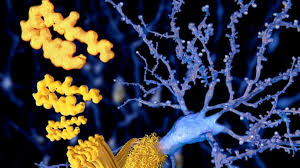Global amyloidosis therapeutic treatment market is expected to develop at a compound annual growth rate (CAGR) of 7.60%, from its estimated USD 2251.2 million in 2023 to USD 4352.35 million in 2032.Amyloidosis is a rare and complex group of diseases characterized by the abnormal accumulation of amyloid proteins in tissues and organs. These proteins can lead to severe organ damage and potentially life-threatening complications. The therapeutic treatment market for amyloidosis is evolving rapidly, driven by advancements in medical research, the development of new drugs, and increasing awareness of this challenging condition.
Browse the full report at https://www.credenceresearch.com/report/amyloidosis-therapeutic-treatment-market
Market Overview
The global amyloidosis therapeutic treatment market is experiencing significant growth, fueled by a combination of rising incidence rates, expanding research initiatives, and increasing healthcare expenditures. The market encompasses a range of therapeutic options, including pharmacological treatments, supportive therapies, and emerging novel therapies.
Pharmacological Treatments
Pharmacological treatment options for amyloidosis primarily target the underlying cause of the disease or aim to alleviate symptoms. The market is currently dominated by drugs that target the specific types of amyloidosis:
1. AL Amyloidosis: This form of amyloidosis results from abnormal immunoglobulin light chains and is often associated with multiple myeloma. The treatment approach involves managing the underlying plasma cell disorder. Therapies include proteasome inhibitors such as Bortezomib and Carfilzomib, immunomodulatory drugs like Lenalidomide, and monoclonal antibodies such as Daratumumab. These drugs have shown efficacy in reducing the production of amyloidogenic light chains and improving patient outcomes.
2. ATTR Amyloidosis: Caused by the accumulation of transthyretin protein, ATTR amyloidosis is further classified into hereditary (hATTR) and wild-type (wtATTR) forms. The therapeutic landscape includes:
– Tafamidis: This drug stabilizes the transthyretin protein, preventing its misfolding and aggregation. Tafamidis has demonstrated significant benefits in slowing disease progression and improving quality of life for patients with ATTR amyloidosis.
– Diflunisal: An older non-steroidal anti-inflammatory drug, Diflunisal has been repurposed for ATTR amyloidosis treatment due to its ability to stabilize transthyretin.
– Gene Silencing Therapies: Emerging treatments such as Patisiran and Inotersen use RNA interference and antisense oligonucleotides to reduce the production of transthyretin. These therapies have shown promise in clinical trials and represent a significant advancement in the treatment of ATTR amyloidosis.
Supportive Therapies
Supportive therapies play a crucial role in managing the symptoms and complications of amyloidosis. These include symptomatic management of heart failure, renal impairment, and neuropathy. For instance, diuretics and antihypertensive agents are commonly used to manage cardiac amyloidosis, while dialysis may be required for patients with renal involvement. Pain management and physical therapy are also essential for addressing neuropathic symptoms.
Emerging Therapies and Research
The amyloidosis therapeutic treatment market is witnessing a surge in research and development activities aimed at discovering innovative treatments. Key areas of focus include:
1. Monoclonal Antibodies: Researchers are exploring the use of monoclonal antibodies targeting amyloid deposits directly or modulating the immune system to enhance amyloid clearance.
2. Small Molecules: New small molecules are being developed to disrupt amyloid fibril formation or promote the disaggregation of existing fibrils. These compounds have the potential to offer new treatment options for various forms of amyloidosis.
3. Gene Therapy: Advances in gene therapy hold promise for addressing the genetic basis of hereditary amyloidosis. By correcting or replacing faulty genes, these therapies could potentially prevent or cure the disease.
Challenges and Opportunities
Despite the progress in amyloidosis treatment, several challenges remain. The rarity of the disease can lead to difficulties in diagnosis and treatment, and the high cost of innovative therapies can be a barrier to access for many patients. Additionally, the complexity of amyloidosis requires a multidisciplinary approach to manage the diverse manifestations of the disease effectively.
However, the growing investment in research and development, coupled with advancements in personalized medicine, presents significant opportunities for improving patient outcomes. Continued innovation and collaboration among researchers, healthcare providers, and pharmaceutical companies are essential to overcoming these challenges and advancing the treatment landscape for amyloidosis.
Key Players
- Prothena Corporation Plc.
- Eidos Therapeutics
- Pfizer Inc.
- SOM Biotech
- Corino Therapeutics
- Johnson and Johnson Services, Inc.
- AstraZeneca Plc.
- Alnylam Pharmaceuticals, Inc.
- GlaxoSmithKline, Plc.
- Others
Segmentation
- By Type of Amyloidosis
- AL Amyloidosis (Primary Amyloidosis)
- ATTR Amyloidosis (Hereditary and Wild-Type)
- AA Amyloidosis (Secondary Amyloidosis)
- By Treatment Modalities
- Chemotherapy
- Immunomodulatory Drugs (IMiDs)
- Monoclonal Antibodies
- TTR Stabilizers
- RNA Interference (RNAi) Therapies
- Liver Transplantation
- Supportive Care
- By Disease Severity
- Newly Diagnosed Patients
- Relapsed or Refractory Disease
- Advanced Disease
- By Region
- North America
- The U.S.
- Canada
- Mexico
- Europe
- Germany
- France
- The U.K.
- Italy
- Spain
- Rest of Europe
- Asia Pacific
- China
- Japan
- India
- South Korea
- South-east Asia
- Rest of Asia Pacific
- Latin America
- Brazil
- Argentina
- Rest of Latin America
- Middle East & Africa
- GCC Countries
- South Africa
- Rest of Middle East and Africa
- North America
Browse the full report at https://www.credenceresearch.com/report/amyloidosis-therapeutic-treatment-market
About Us:
Credence Research is committed to employee well-being and productivity. Following the COVID-19 pandemic, we have implemented a permanent work-from-home policy for all employees.
Contact:
Credence Research
Please contact us at +91 6232 49 3207
Email: sales@credenceresearch.com
Website: www.credenceresearch.com
